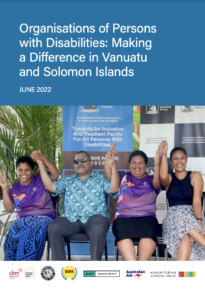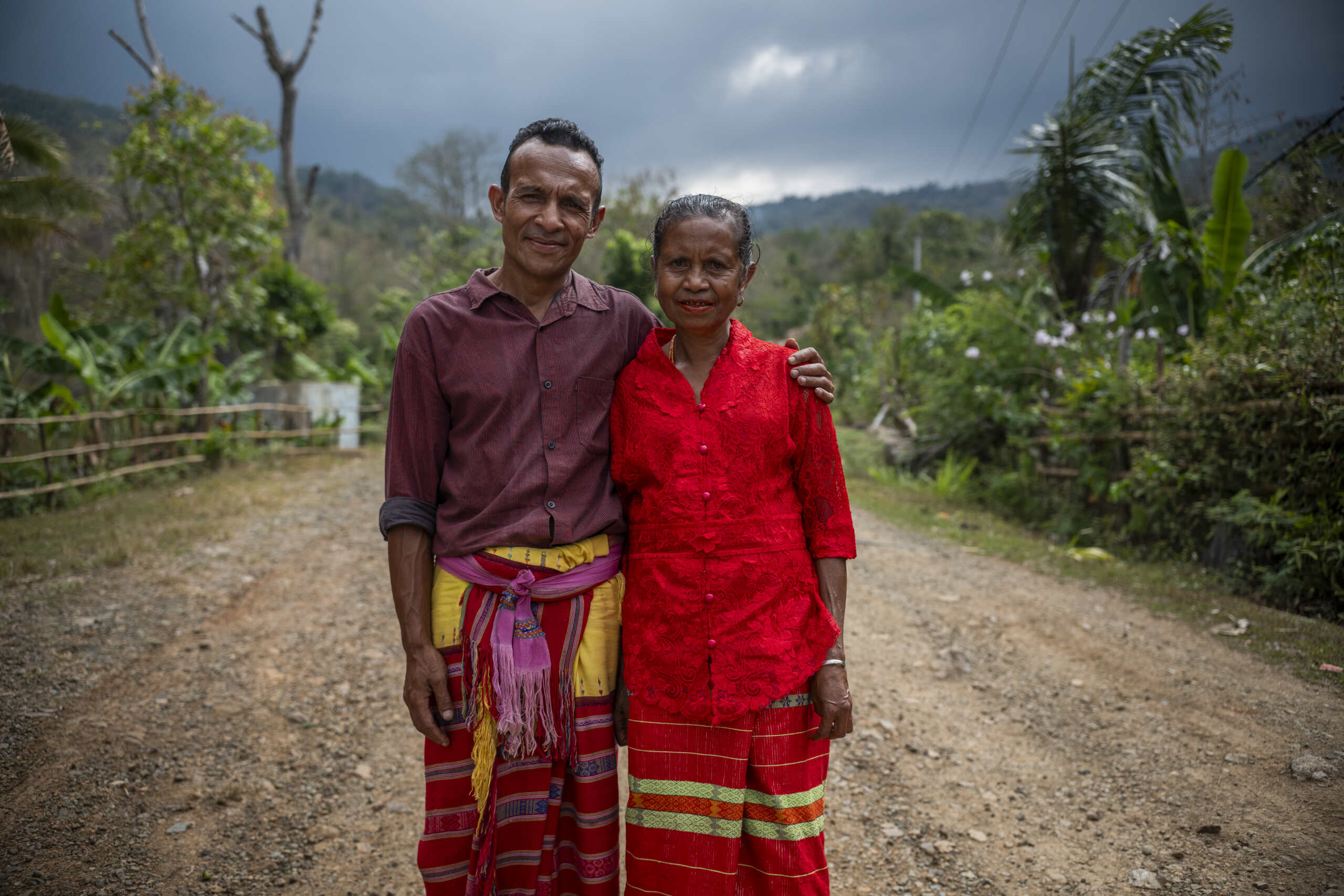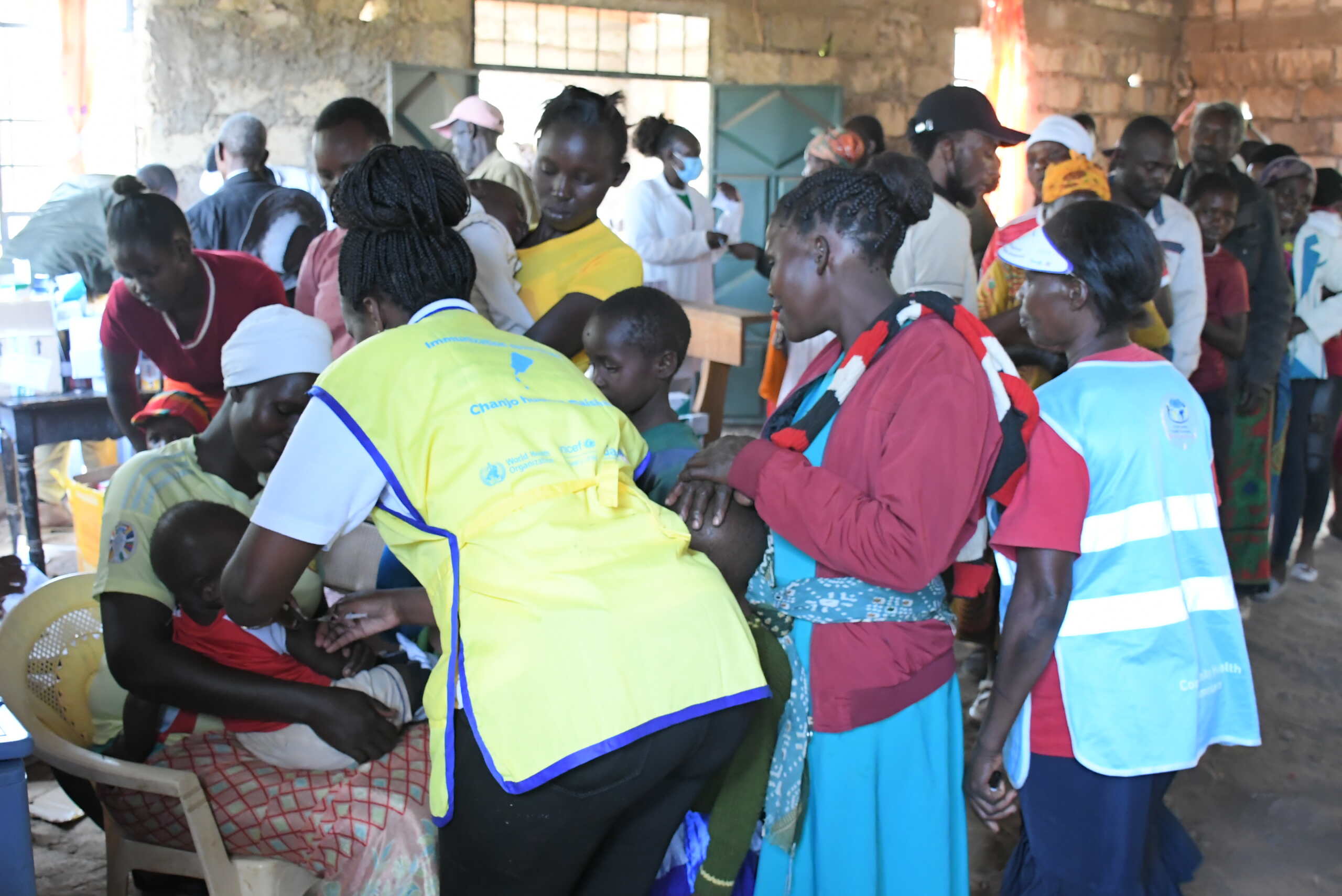Organisations of persons with disabilities: making a difference in Vanuatu and Solomon Islands
Pacific, Stories | June 25, 2024
Consensus is building on the need for greater participation of organisations of people with disabilities (OPDs) in disaster response and preparedness. Yet, the lack of practical guidelines and information on maximising OPDs’ engagement and impact motivated CBM Global’s Inclusion Advisory Group (IAG) to commission a study.
The report draws on two comparative case studies in Vanuatu and Solomon Islands, as well as an extensive desk review of documents. It explores the roles and impact of OPDs in each country and identifies key challenges and enablers constraining and supporting OPDs’ contributions to the disaster preparedness and response sector. A localisation lens was applied to the study to enable the identification of practices that support the empowerment of OPDs as local advocates and disaster preparedness and response actors.
Findings from the comparative case study in Solomon Islands and Vanuatu are summarised below.
Finding 1: OPDs in Vanuatu and Solomon Islands are engaged and making a difference across three main areas: as self-advocates, technical advisors, and implementers.
OPDs in both countries contribute to lowering multiple barriers to inclusion for people with disabilities via their advocacy work, technical support to humanitarian and government actors, service provision and relaying of information directly to and from communities. They are also live examples of the positive contributions that people with disabilities can bring to societies – challenging stigma and raising awareness via their engagement with multiple actors. Positive outcomes have been especially facilitated by the Vanuatu Disability Promotion & Advocacy Association’s extensive network of OPDs in Vanuatu, reaching all provinces of the country. In Solomon Islands, People with Disabilities Solomon Islands’ active role as a technical advisor to Australian Humanitarian Partnership partners is also contributing to these actors adopting more inclusive practices.
Finding 2: Lack of systematic data collection hampers measurement of the impact of OPDs and other actors for people with disabilities.
Change from OPDs’ actions is expected at various levels, but ultimately aims to benefit people with disabilities and their families. However, this is the most difficult outcome for which to collect evidence. The lack of systematic data collection to understand and monitor the impact of OPDs and other actors for diverse people with disabilities is problematic not only from an accountability point of view, but in terms of the ability of actors to improve practices and promote change over time.
Finding 3: OPDs are not being resourced sufficiently to operate effectively in disaster preparedness and response. This constrains their ability to drive change at multiple levels.
OPDs define themselves as primarily advocates of the rights of people with disabilities. In both country contexts, OPDs are stretching their capacity to play other roles as implementers and technical advisers, with the risk of diverting them away from their original mandate. Each role requires specific skill sets and capacities, and whilst the demand on OPDs has increased, resources and support to enable their contributions and participation remain inadequate.
Finding 4: Partnership approaches are a critical factor for OPDs’ success in their roles.
Equal partnership practices that address attitudinal barriers and support the capacity of OPDs to participate in decision making are strong enablers of OPDs’ engagement and contribution to the disaster risk reduction (DRR) sector and beyond. The present study identified four positive practices in place or in the process of being implemented across Solomon Islands and Vanuatu. These practices were found to support OPDs’ meaningful participation and engagement but are adopted by a minority of OPDs’ partners, including international NGOs and government actors. They are:
- Establishment of long-term flexible partnerships
- Partners having an in-house inclusion specialist or focal point to progress mainstreaming
- Provision of targeted capacity-building and technical support
- Ensuring inclusive practices and reasonable accommodations when interacting with OPDs.
Finding 5: OPDs’ strategic visions and objectives pave the way forward and invite partners to align their support.
The role of international partners in supporting the capacity and strategic development of OPDs in line with OPDs’ own strategic plans is central to localisation (the empowerment of local actors to lead and contribute to development in the long term). The tension between competing priorities – OPDs having to choose between serving their own objectives as advocates and supporting their partners’ objectives – can be overcome if these objectives and priorities align. The present study identified the top two priorities for advancing OPDs’ work in disaster response and preparedness, and invites other humanitarian actors to consider areas that they would be willing to support in line with OPD’s own priorities.
 This excerpt was taken from the report, Organisations of Persons with Disabilities: Making a Difference in Vanuatu and Solomon Islands.
This excerpt was taken from the report, Organisations of Persons with Disabilities: Making a Difference in Vanuatu and Solomon Islands.
View the full report on the CBM Global Inclusion Advisory Group website
https://www.cbm.org.au/stories/organisations-of-persons-with-disabilities-vanuatu-solomon-islands-disaster-response-preparedness-report
Related Stories

How CBM is making a difference in Indonesia
For more than 45 years, CBM Global has been working alongside communities in Indonesia to ensure people with disabilities...

Coordinating inclusive health outreach in Meru County
For many households in Meru’s rural and remote areas, basic health services are physically...

Share your advocacy preferences with us
Thank you for helping us to advocate for the one billion people with disability globally. CBM Australia advocate across...
